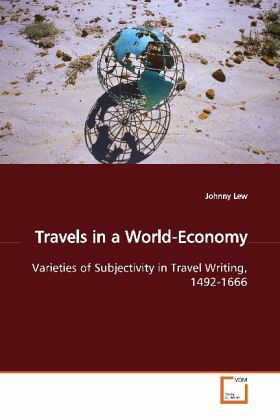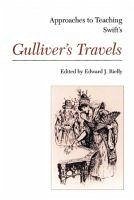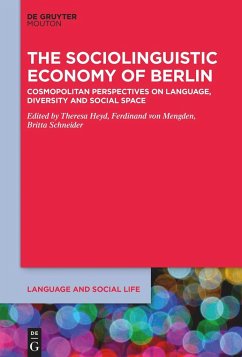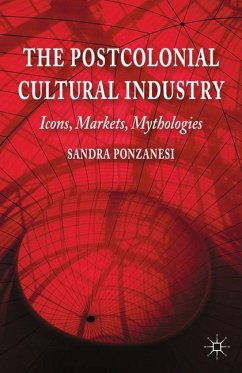
Travels in a World-Economy
Varieties of Subjectivity in Travel Writing, 1492-1666
Versandkostenfrei!
Versandfertig in 6-10 Tagen
32,99 €
inkl. MwSt.

PAYBACK Punkte
16 °P sammeln!
Although the increasing mobility of contemporarysocieties and cultures has brought the subject oftravel and travel writing to our attention in recentdecades, our critical attentions have not usuallybeen focused on the history and role of travelitself. How have the experiences and meanings oftravel changed, especially in relation to radicalsocial and cultural shifts? This study historicizesthe nature of travel by describing its significancein an emerging world-economy, especially in contrastto world-empires. This study argues that in themodern world-economy of the long sixteenth century,three r...
Although the increasing mobility of contemporary
societies and cultures has brought the subject of
travel and travel writing to our attention in recent
decades, our critical attentions have not usually
been focused on the history and role of travel
itself. How have the experiences and meanings of
travel changed, especially in relation to radical
social and cultural shifts? This study historicizes
the nature of travel by describing its significance
in an emerging world-economy, especially in contrast
to world-empires. This study argues that in the
modern world-economy of the long sixteenth century,
three relatively distinct kinds of traveling
subjectivities emerged, subjectivities that
functionally correspond to the economic system s
interconnected relations among core, periphery and
semiperiphery. This study will be of interest to
economic, political, literary and cultural historians
exploring the importance of our increasing mobilities
in the modern era.
societies and cultures has brought the subject of
travel and travel writing to our attention in recent
decades, our critical attentions have not usually
been focused on the history and role of travel
itself. How have the experiences and meanings of
travel changed, especially in relation to radical
social and cultural shifts? This study historicizes
the nature of travel by describing its significance
in an emerging world-economy, especially in contrast
to world-empires. This study argues that in the
modern world-economy of the long sixteenth century,
three relatively distinct kinds of traveling
subjectivities emerged, subjectivities that
functionally correspond to the economic system s
interconnected relations among core, periphery and
semiperiphery. This study will be of interest to
economic, political, literary and cultural historians
exploring the importance of our increasing mobilities
in the modern era.












